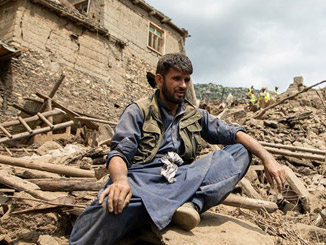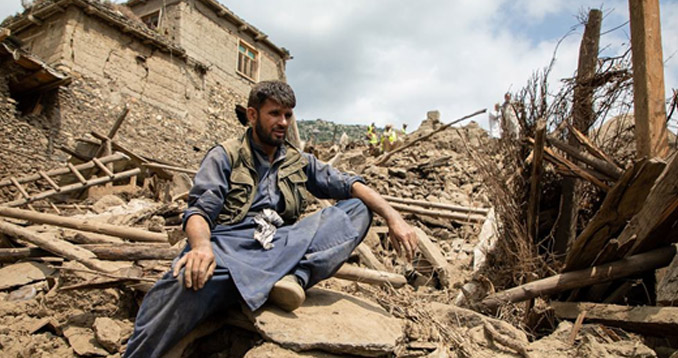

UN News A villager in Kunar province, Afghanistan, clears rubble following the earthquake which struck the country at the end of August.
Women and children face heightened risks, while operational challenges – including restrictions on female UN staff – threaten life-saving relief efforts.
The twin quakes, measuring 6.0 and 6.2, struck on 31 August and 4 September, flattening entire villages in Kunar, Nangarhar, Laghman and Nuristan provinces. Mountainous terrain and landslides blocked key roads, leaving air transport as the only reliable access.
Assessments indicate over 6,700 homes were destroyed or damaged, forcing most families to shelter in the open without privacy, clean water, or basic services.
UNFPA, the UN reproductive health agency, has deployed health teams to the hardest-hit areas, providing maternal and reproductive healthcare, psychosocial support and counselling. More than 9,500 people have received assistance so far.
“Women and children in particular are extremely traumatized,” said a psychosocial counsellor. “Our goal is to support their emotional and mental health and provide whatever assistance we can, including medicines and dignity kits.”
Among the affected, UNFPA estimates some 11,600 pregnant women face heightened risk due to limited access to health services.
“For pregnant women, a natural disaster can turn an already challenging time into a life-threatening crisis,” said UNFPA Representative Kwabena Asante-Ntiamoah.
World Health Organization (WHO) mobile teams have been deployed to provide trauma care, maternal and child health services, mental health support, immunizations, and emergency nutrition.
The agency has also dispatched 43 tonnes of medical supplies and provided over 4,500 consultations through its clinics.
Sudan: UN envoy heads to region in call for dialogue towards peace
UN News The UN Secretary-General’s Personal Envoy for Sudan, Ramtane Lamamra, has travelled to East Africa to address the ongoing civil conflict there and push for negotiations towards a peace deal.
In a post on X earlier this week, Mr. Lamamra called on combatants and political actors in Sudan “to engage in constructive dialogue leading to a sustainable solution.”
The goal of the visit is to make progress on the protection of civilians and to strengthen multilateral mediation efforts in the country.
To achieve that, he is working together with the African Union to organize a ministerial-level consultative group meeting in Addis Ababa.
As the rival militaries continue to attack civilians and vital infrastructure, many displaced people and other communities are receiving reduced food assistance, or none at all.
“We continue to reiterate our calls for an end to this conflict that has left 25 million people acutely hungry,” said the UN Secretary General’s Spokesperson Stéphane Dujarric at a press conference on Thursday.
